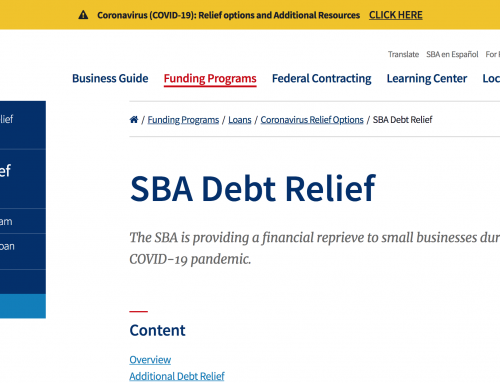Podcast: Play in new window | Download
Subscribe: Apple Podcasts | RSS
In this particular episode, you will learn
- About Small Business Legal and Practical Tips
Podcast transcript:
Disclaimer: This information is for educational purposes only and not to be used as tax or legal advice. Tax law and accounting protocol are constantly changing. Seek an attorney and qualified accountant.
Audio
Small Business Accounting Tips, United States, Communicating with Your Advisors, Legal Structure of a Business, Personal Liability and Business
Topics
Small Business Accounting Tips, United States
Communicating with Your Advisors
Legal Structure of a Business
Personal Liability and Business
Small Business Accounting Tips, United States
The focus of starting a business in the United States should be quickly finding customers for your goods and services. While liability and intellectual property protection are very important, aspiring business owners get caught up in the details of entity type, operation, and compliance requirements. Moreover, entrepreneurs stress over details and worry about someone copying an idea that few care about and even fewer have the capacity to implement. Thus, the optimal way to conduct business is to strike a balance between cost effectiveness and action by consulting insurance and legal professionals.
Communicating with Your Advisors
Seek people who have significant experience in your business area. Interview them and ask for specific examples of their experience. Prior to talking with others, maximize their time by first educating yourself on the basics. Document a business plan, including goals and exactly how to accomplish them. By planning and researching questions prior to meeting with advisors, you will be able to accomplish more with them.
Legal Structure of a Business
If there are two or more owners in a business, it is likely worth the associated cost to form a separate legal entity. Without a structure in place, two or more people in business together may be classified as a general partnership. If this is the case, all partners would share unlimited personal liability for the business. Common business structures that limit liability are corporations, limited liability partnerships, and limited liability companies. These structures provide the legal framework to set ownership and rights on paper. Having only one owner allows more flexibility in the entity choice. One owner may also decide to delay the entity formation and act as a sole proprietor until outside investors are willing to invest, a product is profitable, or employees are hired. Sole proprietors should carefully analyze the costs and benefits in pursuing a separate legal entity.
Having employees creates many potential liabilities for businesses. Employees perform inherently risky things for employers: climb ladders, operate machinery, and perform other tasks. Insurance may cover things like injury, but policy maximums can quickly be reached and the owner held personally liable. Legal structures can help limit this risk and should be strongly considered when there are employees or even independent contractors.
Limiting liability with a corporate or limited liability structure is ideal, but costly. Many California companies in the tech space register a corporation in Delaware and operate in California. In this example, the corporation will generally need to pay fees to Delaware, California, as well as file separate tax returns and hire an accountant. Delaware is a popular state to incorporate in because of the court system and laws. Using this legal structure may make it easier to attract investors and possibly sell a company.
The necessity for outside investment is a very important factor when deciding on a business entity. If the business is seeking outside investment, ask other businesses and investors in the industry which structures are preferable. It is also valuable to seek legal counsel from firms that are experienced in your particular business type.
A lack of legal structure could exclude a business from certain contracts. Large corporations may have a policy of only working with other legal structures (not individuals or sole proprietors). Superficially speaking, a corporation or limited liability company may give a business the image of being legitimate and professional, as outsiders may perceive an “Inc” (corporation) or “LLC” (limited liability company) as a big operation.
Personal Liability and Business
Legal structures such as corporations or those that limit liability may not protect against all lawsuits. Often, the entity will not protect individuals against professional liability. For example, if a Certified Public Accountant (CPA) operates a corporation that files fraudulent tax returns, the CPA may still be personally liable in a lawsuit. Personal liability can also extend to copyrights. If an artist copies other musicians while operating as a corporation, the artist can still be individually liable for copyright infringement.
Thus, it is imperative to know that limiting personal liability is a combination of careful operation, business structure, and insurance. The first line of defense against liability for a company should be insurance. Insurers can insure nearly everything from professional liability to earthquakes. Generally, large businesses are structured so that insurance provides initial legal protection against lawsuits and defaults. Other underlying business units and assets may be further added as wholly owned limited liability companies or corporations by the larger business structure. For example, should one hotel structured as an LLC collapse; the larger corporate hotel chain owner would be protected to some degree. Single owners, however, need to be practical in the entity costs, especially if they do not have any personal assets at risk.
An attorney specializing in this area should complete business entity documents and filings. A qualified tax accountant can discuss the tax implications of the entity structure as it relates to your individual tax situation and business entity. The most effective results are achieved when attorneys, accountants, and tax accountants can make informed decisions together. Setup a meeting or conference call with both parties so everyone understands the facts and circumstances and can make the best decision.
- Entity choice depends on many factors such as: number of business owners, business type, necessity for outside investment, customer perception, tax liability, individual assets, business goals, government regulation, and employees
- Limiting liability is very important, but has several associated costs and benefits
Tax
The tax rules surrounding business structure may impact the owners and the ability to attract investors and raise capital. Generally structures are either taxed at the corporate level such as a C-corporation or at the owner level, such as a limited liability company. Each structure has very specific tax rules, costs, and benefits for the investors and owners. Seek professional guidance to determine the structure best suited for the needs of the business.





Thanks for sharing. I am really happy to read it. Find out more: tax accountant